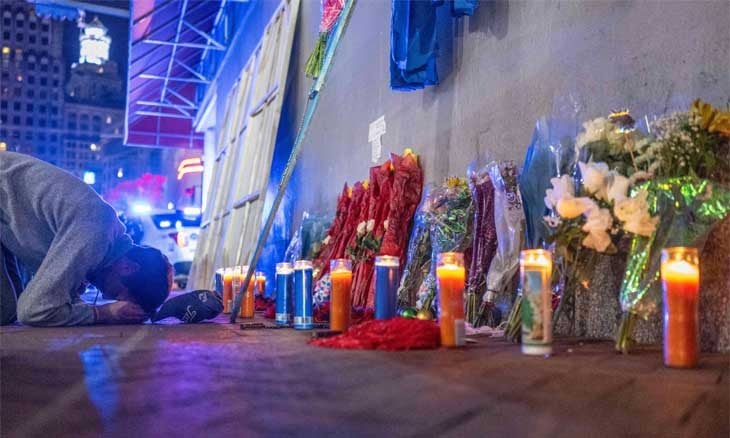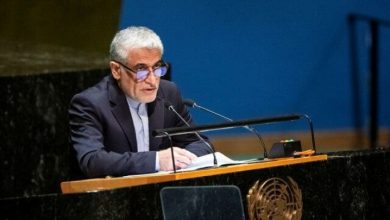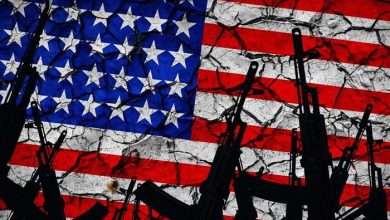American Terrorism and Its Management
Association for Defending Victims of Terrorism - Al-Quds Al-Arabi, in an article written by "Sinan Anton", a prominent Iraqi writer, criticized the dominant narrative about terrorism in the United States and wrote: The first hours after each terrorist attack in the United States show the consolidation and rooting of the dominant discourse about terrorism and its terms and concepts in the political unconscious.

The Shafaqna website translated and published this report. The rest of the report reads:
Anton also wrote, referring to this issue: But in some cases, doubt, confusion and hesitation in this discourse and its weakness are revealed. This was clearly evident after the two recent attacks in New Orleans and Las Vegas earlier this year. The perpetrator of the first attack, Shams al-Din Jabbar, was carrying the ISIS flag and had previously declared his allegiance to the group; this made it easy to place the attack and its perpetrator within a predetermined framework. But many noted with some surprise that Jabbar was American, not an immigrant, given the prevailing assumption that terrorism is a foreign phenomenon with roots and sources outside the country and alien to its culture and history. Many also expressed surprise that Jabbar had been a soldier in the US military; but information that emerged the day after the attack about his recent conversion to Islam and his inclination towards a conservative and radical version of it that considers many things forbidden cast a shadow over his years of service in the US military and special forces.
How is the US narrative on terrorism being challenged?
The author goes on to challenge the dominant narrative about terrorism in the United States, noting how such a narrative ignores the violence of the US government abroad and its devastating effects on soldiers, focusing only on the domestic and religious aspects of terrorism. He compares these attacks to the 1995 Oklahoma City bombing, which was carried out by an American veteran. He continues: Matthew Leifsberger, the perpetrator of the second attack in Las Vegas against one of Trump’s hotels, which was carried out last Wednesday night using one of his new ally Elon Musk’s cars after filling it with explosives, did not declare allegiance to ISIS, did not raise its flag, and did not even convert to Islam. But he does have something in common with Jabar (the perpetrator of the first attack) in the US Army, as Leifsberger held the rank of sergeant and served in the US Army for nineteen years, eighteen of which were in Special Forces. He carried out the attack while on official leave from his unit in Germany, and had received five medals for valor and the Afghanistan Campaign Medal with three stars for his bravery in three phases of combat.
The claim that there is no evidence of coordination between the two attacks or any connection between their perpetrators—other than the fact that both fought in Afghanistan, like tens of thousands of other Americans—is repeated over and over again to reassure citizens that there is no organized plot to carry out terrorist attacks at home. But what is striking is that the impact of America’s wars and the brutality of its invasions is completely ignored, as if these wars and the violence they caused had no impact on the lives of these returning soldiers or their actions.
This omission is, of course, necessary to maintain the discursive boundaries between legitimate, rational, and acceptable violence, and another kind of violence that seems to be aimless, futile, and irrational. The result of this approach is the purification and dehumanization of state and imperial terrorism. This terrorism is carried out abroad against “barbarians” and must always be interpreted as legitimate and necessary violence to preserve civilization, while pure and simple terrorism is attributed to civilizational backwardness, absurdity, or hatred. In this regard, more than one politician and commentator has mentioned the word “hatred” in interpreting these two attacks.
The Politics of One Roof and Two Airs
Leifsberger is not the first American soldier to carry out a terrorist attack inside the United States. He may have been inspired by or imitated by Timothy McVeigh, who carried out the largest “domestic” terrorist attack in Oklahoma City on April 19, 1995 (not 1998). In that attack, 167 people were killed and 648 injured when an explosion destroyed a federal building. In the early hours after the attack, almost all American observers and analysts believed that “a terrorist operation of this magnitude could only be the work of Arabs and Muslims!” Especially since the 1993 attack on the World Trade Center was still fresh in public memory. Even a famous presenter announced that a man with a Middle Eastern appearance was seen fleeing the scene. But the Federal Bureau of Investigation (FBI) revealed that the perpetrator of the attack was a young white man who had previously served in the US military.
The unjustified killing of defenseless civilians is condemned unless it is in Gaza
McVeigh joined the U.S. Army at the age of 20, and during his service, he became exposed to the racist ideology of the KKK (Kurdish Ku Klux Klan). He served in the 1991 Persian Gulf War, receiving five medals of valor. After returning from the Gulf War, McAfee’s anger at the policies of the U.S. federal government grew, to the point where he described the federal government as the ultimate bully. He became involved with right-wing militants. He was angered by the 1993 FBI raid on the Branch Davidian compound in Waco, Texas, which resulted in a fire and dozens of deaths. McAfee saw the incident as another example of federal government overreach. In an interview before his execution, McAfee recounted his memories of the 1991 Persian Gulf War, describing a cannonball fired at an Iraqi soldier from 110 yards away that instantly decapitated him. He also spoke of his shock at seeing the charred bodies of Iraqi soldiers who had been bombed by the US military and its allies during the retreat from Kuwait, on what later became known as “Death Road.” This is one of the forgotten war crimes, and there are many others.
American writers and politicians compete to condemn terrorism and the unjustified killing of defenseless civilians, unless the targets are in Gaza; because in the civilized world, there are always exceptions.




